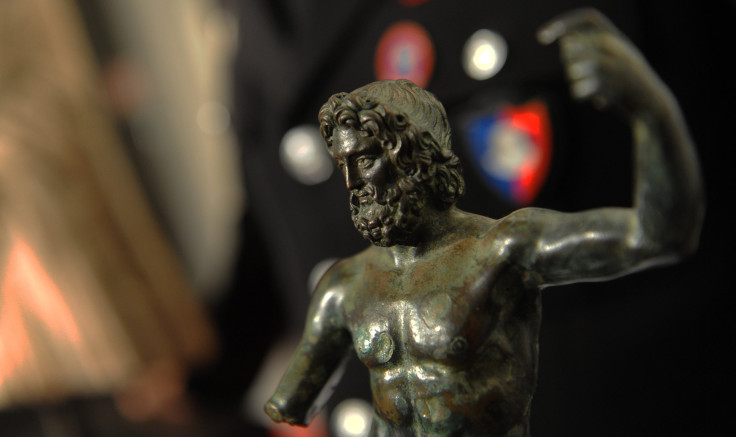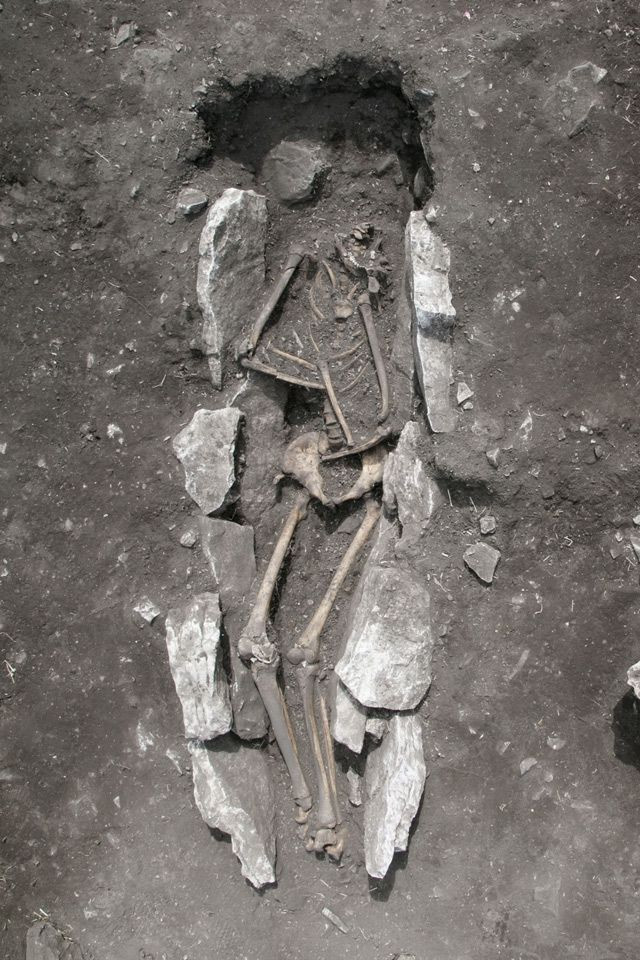Human Skeleton Unearthed In Greece May Be The Remains Of A Human Sacrifice To Zeus

In his seminal work “Description of Greece,” the second-century Greek traveller and geographer Pausanias tells the tale of Lycaon — the king of Arcadia who, to test Zeus’ omniscience, served him a dish made of roasted human flesh. Legend has it that Zeus, enraged at this impiety, turned Lycaon into wolf.
According to a version of the story told by Plato, this event led to an annual ritual at Mount Lykaion, during which a boy was sacrificed along with animals and all the meat was cooked together. Anyone who ate human flesh would then be turned into a wolf for nine years.
However, no human remains were ever discovered at Mount Lykaion.
Until now.
On Wednesday, Greece’s culture ministry announced that a team of researchers had discovered a 3,000-year-old human skeleton in an ash altar on the mountain. The upper part of the skull is missing, and the skeleton was found buried among two lines of stone on an east-west axis.
Preliminary analysis of the remains suggests that they belong to a teenage boy.

“Several ancient literary sources mention rumors that human sacrifice took place at the altar, but up until a few weeks ago there has been no trace whatsoever of human bones discovered at the site,” excavator David Gilman Romano, a professor of Greek archaeology at the University of Arizona, told the Associated Press. “Whether it's a sacrifice or not, this is a sacrificial altar ... so it’s not a place where you would bury an individual. It's not a cemetery.”
However, given that only 7 percent of the altar has been excavated so far, the researchers are not yet rushing to conclusions. They hope that further excavations — planned to take place over the next four years — will provide answers to whether stories about human sacrifice to Zeus are just myths, or whether they have a grain of truth in them.
“On the one hand there’s this picture of Greece as the cradle of civilisation, the birthplace of democracy, of philosophy, of rational thinking,” Jan Bremmer, professor emeritus of religious studies at the University of Groningen, Netherlands, told the Guardian. “But on the other hand we have these cruel cruel myths.”
© Copyright IBTimes 2025. All rights reserved.





















